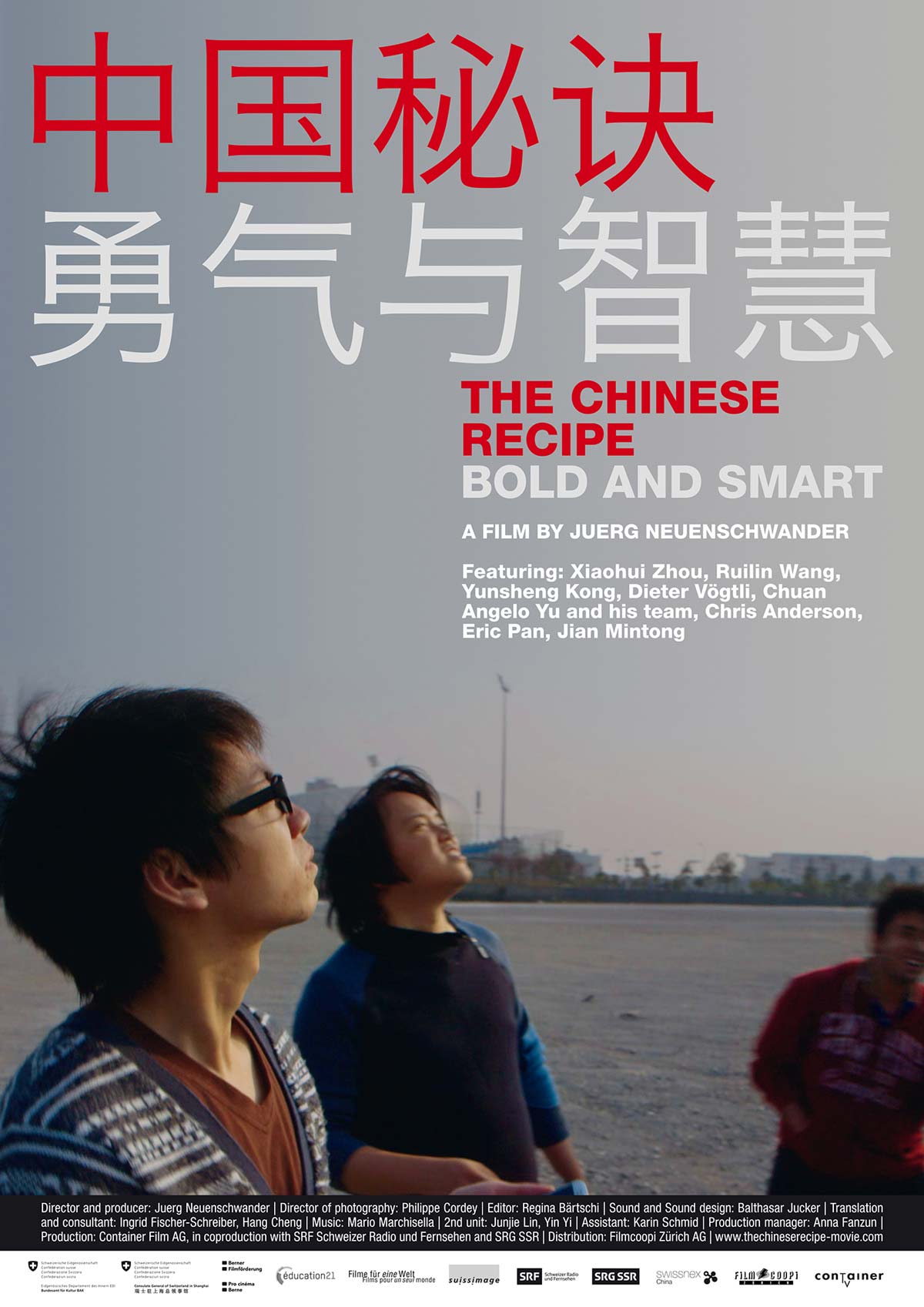
从Jürg Neuenschwander 2009年开始到同济大学设计创意学院担任客座教授起就和他相识并一直合作。他最初的自我介绍使人印象深刻,“我来自瑞士的一个小村落,我的父亲是一位乡村教师”,这也许是他同时作为一名职业纪录片导演需要迅速拉近和陌生人关系的职业习惯使然。虽然当时Juerg刚刚五十出头,但因他一头浅色趋白的头发被学生在私底下爱称为“瑞士老爷爷”。在随后的这些年中,他陆续组织了同济和他来中国之前工作的学校瑞士伯尔尼艺术大学之间的联合工作坊,其中涉及了远程教育、音乐视觉表演、跨文化设计和跨专业研讨会等等。
Juerg在中国的这些年正好是中国的“后奥运时代”——和西方关系发生变化的一个转折时期,从单纯引进技术到互相合作,从全盘山寨到功能改良,从本土品牌被收购到独立品牌重新确立。Juerg的最新纪录片《中国秘诀:勇气与智慧》从一个视角纪录了这些变化。
影片以创业为主题,剖切了几乎属于三代人的当下生活和对未来的憧憬——历经磨难后成功转型的50后工程师、中瑞饲料机械合资企业初创者;有些无奈又自得其乐的70后音响制作小业主;抓住机遇充满希望的90后无人机初创者maker。而围绕这三位主人公,导演还以其敏锐地,看似不经意间同时捕捉了他们周边的人,包括饲料机械厂的寻求事业发展的客户,小业主工坊中身兼清洁工、收银员的老奶奶,内地初创者的充满西方技术理想主义分享精神的国际合作者。作为观众,同时作为一个70后中国人,现实生活中的人和事因为出现在一个对中国有很深了解的瑞士导演的纪录片中而显得熟悉又陌生。
导演以一种乐观的同理心呈现了西方对中国广为批评的“山寨”现象下的中国人的现实生活。模仿在中国有着自古的文化渊源,但在西方严格的专利制度下如何继续前行,已经不再仅仅是中国的问题,而是所有创新者需要面对的共同问题。但无论如何,一个多元价值取向的中国社会正在成型,影片为我们打开了一个内含中国特色的创业锦囊。
吴洁
于往赫尔辛基途中
2015年12月9日
The years during which Jürg Neuenschwander spent most of his time in China were the years after the Olympic Games, which marked a turning point in China’s relationship with the West. It was no longer a case of simply importing technology, but about collaborating. And it was no longer a case of out-and-out shanzhai – i.e. copying – but about optimizing functionalities. It was also no longer a time of Chinese brands being bought up, but of independent Chinese brands beginning to establish themselves. These are precisely the changes that Neuenschwander captures in his latest documentary, The Chinese Recipe – Bold and Smart.
The film is concerned with entrepreneurship. It dissects the lives and future ideas of people from three generations: an engineer born after 1950 who, after going through those difficult years, managed to turn things around and founded a Sino-Swiss joint venture for feed production; a small-scale businessman born after 1970 who began manufacturing audio equipment more or less out of necessity, and who is now completely wrapped up in his career; and a group of makers born after 1990 who are filled with optimism and want to seize their chance by using their startup to develop a drone.
The director’s eye for detail means that he also captures, almost as if in passing, other people who inhabit the same space as the three protagonists: a customer who buys machines from the feed-mill company and who is a successful businessman in his own right; the mother of the amp-maker who is a cleaner and cashier rolled into one; and the international partners of the makers who live in far-off Guiyang and are inspired by Western technological idealism and a philosophy of sharing. For a viewer born in China after 1970, these real-life people and their environments seem both familiar and strange because they appear in a documentary made by a Swiss director with a profound knowledge of China.
With a great deal of empathy tinged with optimism, the director shows the very real lives of Chinese people who are utterly at home in the shanzhai culture of imitation that is so heavily criticized by the West but has such a long cultural tradition in China. The question of how progress can be made within the confines of the West’s strict patent system is no longer only relevant to China; it is now an issue that all innovative thinkers will have to address. In any case, a Chinese society with pluralistic values is emerging, and this documentary opens our eyes to entrepreneurship, Chinese-style.
WU, Jie
On the way to Helsinki,
Dec. 09, 2015
More information about the film and the director:
www.thechineserecipe-movie.com
juergneuenschwander.com
